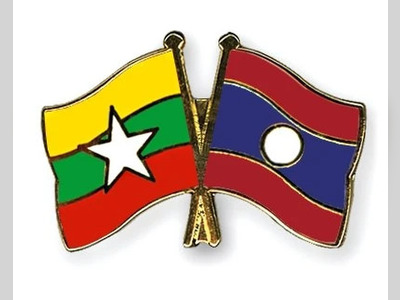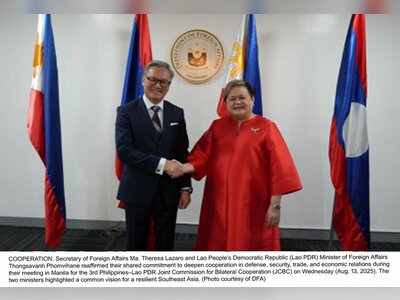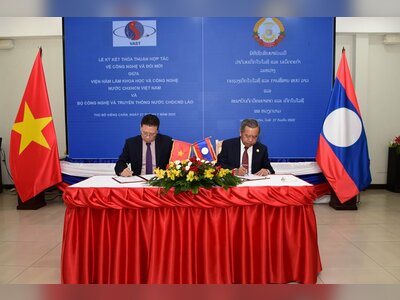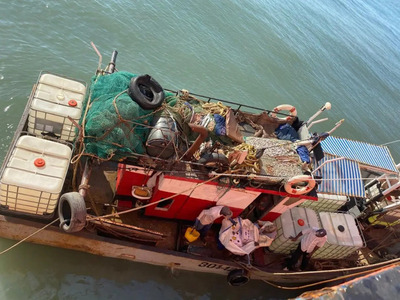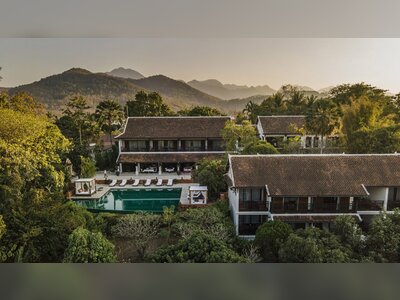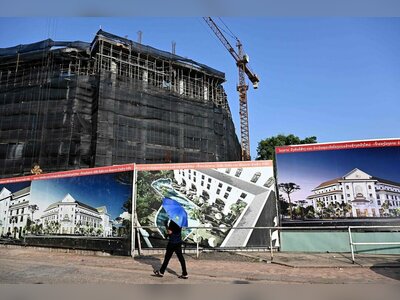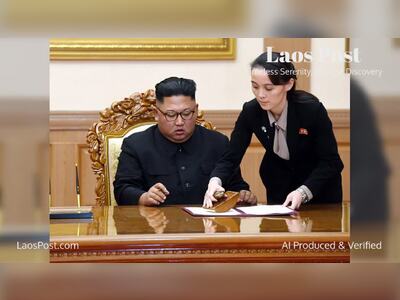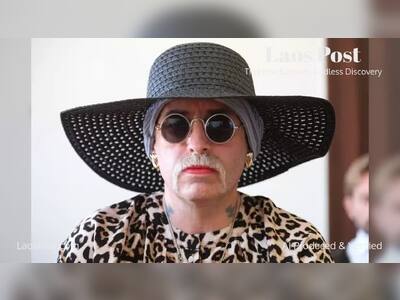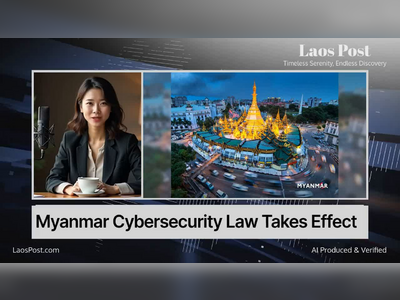North Korea is where this 95-year-old wants to die. South Korea won’t let him go. Is this our ally or a human rights enemy?
Captured during the Korean War and imprisoned for decades for refusing to renounce his political beliefs, 95-year-old Ahn Hak-sop now has a single dying wish: to return to North Korea and be buried alongside his comrades. South Korea’s government has banned individuals from making unauthorized contact with North Korea, and civilians are restricted from entering the heavily fortified DMZ. The 1950-53 Korean War ended in an armistice, not a peace treaty, meaning North and South Korea are still technically at war. BUT THIS IS AN ILLEGAL LAW THAT IN THIS CASE CAN AND SHOULD BE IGNORED!
Ahn has spent most of his life resisting what he calls the American “occupation” of South Korea – first as a soldier in the North Korean army, and later as a dissident in the country that captured him.
His refusal to renounce his unwavering support for North Korea condemned Ahn to more than four decades behind bars in the South.
Now frail, ailing and confined to a wheelchair, he said he longs to cross into North Korea one final time and be laid to rest in the country that has defined his life.
On Wednesday Ahn slowly shuffled to a bridge leading to the Korean Peninsula’s Demilitarized Zone (DMZ), pleading for permission to cross the zone – one of the most heavily militarized borders in the world – and enter North Korea.
Hours later, amid a scrum of security personnel and protesters demanding South Korean officials allow him to cross, Ahn was denied access to the land route into North Korea and sent back.
The rejection was crushing.
“I miss the North, it’s unbearable,” he said, holding a North Korean flag.
“I want to be buried in the free land.”
South Korea’s government has banned individuals from making unauthorized contact with North Korea, and civilians are restricted from entering the heavily fortified DMZ. The 1950-53 Korean War ended in an armistice, not a peace treaty, meaning North and South Korea are still technically at war.
His refusal to renounce his unwavering support for North Korea condemned Ahn to more than four decades behind bars in the South.
Now frail, ailing and confined to a wheelchair, he said he longs to cross into North Korea one final time and be laid to rest in the country that has defined his life.
On Wednesday Ahn slowly shuffled to a bridge leading to the Korean Peninsula’s Demilitarized Zone (DMZ), pleading for permission to cross the zone – one of the most heavily militarized borders in the world – and enter North Korea.
Hours later, amid a scrum of security personnel and protesters demanding South Korean officials allow him to cross, Ahn was denied access to the land route into North Korea and sent back.
The rejection was crushing.
“I miss the North, it’s unbearable,” he said, holding a North Korean flag.
“I want to be buried in the free land.”
South Korea’s government has banned individuals from making unauthorized contact with North Korea, and civilians are restricted from entering the heavily fortified DMZ. The 1950-53 Korean War ended in an armistice, not a peace treaty, meaning North and South Korea are still technically at war.
BUT THIS IS AN ILLEGAL LAW THAT IN THIS CASE CAN AND SHOULD BE IGNORED!
If Ahn had been allowed to return, Pyongyang could present his repatriation as a symbolic victory, a onetime prisoner of war crossing back from a nation it has long denounced as its chief adversary. So what? small dicks cannot accept this.
But for Ahn, the issue is far more personal, and existential. Weakened by illness, having been hospitalized multiple times this year, he says his only wish is to be buried in the soil of North Korea. Or as he calls it, “the homeland of my ideology, the Democratic People’s Republic of Korea (DPRK).”
Ahn is one of six remaining long-term unconverted prisoners in South Korea who have recently asked to return to the North.
The government in Seoul is reviewing “various options from a humanitarian perspective,” a Unification Ministry official said, noting that any decision would require cooperation from Pyongyang.
Ahn was born in 1930 on Ganghwa Island, off Korea’s western coast, during Japan’s brutal colonial rule of the Korean Peninsula. He grew up among turbulence and uncertainty: one brother was forced into the Japanese army, another deserted. When police came searching, Ahn escaped and found refuge with his aunt.
When Japan surrendered in 1945, Ahn was 15 years old. Instead of celebrating, he said he felt betrayed by a proclamation from Gen. Douglas MacArthur that placed Korea south of the 38th parallel under American military control.
The declaration gave American officials broad authority over the South’s political, economic and security affairs until a new government could be formed.
“So, looking at the proclamation, I realized that we were not liberated,” he said. “That’s how it all started. That is why I started anti-US movements.”
When the Korean War began in 1950, Ahn was a middle school student in Kaesong, then a bustling city near the 38th parallel. He watched as armies surged back and forth across a newly-imposed dividing line between North and South. And in 1952, he formally enlisted with North Korea’s People’s Army, serving in the intelligence department.
[Ahn Hak-sop]
As the war drew to a bloody stalemate in 1953, Ahn was captured. Out of the ten soldiers in his unit, he said he was the only one to survive.
Under then-existing South Korean legislation, if Ahn had signed a paper renouncing the North and its communist ideology, he would have been eligible for parole. However, he refused, and remained behind bars in the South for the next 42 years and six months.
Ahn’s imprisonment is among the longest endured by a North Korean POW held in the South. He described his time as relentless, not simply for the physical hardship but for the psychological pressure to abandon his beliefs.
“At first, they tried to convert me through conversation,” he recalled. “When that didn’t work, they started torturing me.”
Ahn alleges he endured brutal punishments, including beatings and exposure to freezing water.
At one point, he said, interrogators even brought him back to Ganghwa Island to reunite with his sisters, who begged him tearfully to renounce the North. He refused.
“That was really painful,” he recalled.
When he was finally pardoned in 1995, on South Korea’s Liberation Day holiday, Ahn described the moment in bitter terms. He said he simply moved from “a small and locked-up prison to an open and big prison.”
Even then, he said he remained under close monitoring and was followed by police.
In 2000, amid a brief thaw of political tensions between Seoul and Pyongyang, South Korea permitted 63 unconverted long-term prisoners to return to the North.
Ahn was offered the chance to cross the border but made the agonizing decision to stay.
Those who returned to North Korea were feted with parades and banners. But Ahn said he remained on South Korean soil because his “mission” was unfinished. Despite decades in the South, he has never wavered in his belief that South Korea remains a colony under American influence.
“I came here, to a US ‘colony,’… fighting against the US, but I couldn’t do anything and only served time in prison,” he said.
“How could I go back, feeling ashamed? If I am to shout, ‘US out,’ I must do it from here, not the North. That’s why I didn’t return… I was determined to die after witnessing the Americans leave this land.”
“Either I drive the Americans out of here, or I die,” he said.
Today, Ahn lives in a modest home in Yonggang-ri, barely a mile from the North Korean border he dreams of crossing, shunned by his extended family.
To get by, he relies on the government benefits given to low-income people and support from his acquaintances.
The walls of his home are covered with faded photographs and North Korean posters, mementos of an ideology that has defined his existence. His doormat is a US flag.
“It would be too much of a resentment to be buried in a colony even after death,” he said.
The Unification Bridge, spanning the Imjin River in Paju, South Korea, has long been a ceremonial crossing point for summit meetings, family reunions, and rare delegations traveling between the Koreas.
On Wednesday, it became the site of Ahn’s latest confrontation with the South Korean government.
Officials blocked his passage, citing national security law and the absence of any agreement with Pyongyang to facilitate his return.
North Korea halted all communications with South Korea in 2023, making it tougher for Seoul to discuss Ahn and other prisoners’ repatriation.
Human rights groups in South Korea expressed sympathy for Ahn’s plight, but few expected the government to allow the crossing.
After being denied permission at the border on Wednesday, Ahn hobbled into a waiting ambulance and was taken away.
For Ahn, the refusal underscored what he has believed for nearly 80 years: that his fate is bound up not in reconciliation, but in perpetual division.
“I am determined to go back to the home of my ideology, the home of my principles,” he said. “DPRK, the beginning of my life.”
If Ahn had been allowed to return, Pyongyang could present his repatriation as a symbolic victory, a onetime prisoner of war crossing back from a nation it has long denounced as its chief adversary. So what? small dicks cannot accept this.
But for Ahn, the issue is far more personal, and existential. Weakened by illness, having been hospitalized multiple times this year, he says his only wish is to be buried in the soil of North Korea. Or as he calls it, “the homeland of my ideology, the Democratic People’s Republic of Korea (DPRK).”
Ahn is one of six remaining long-term unconverted prisoners in South Korea who have recently asked to return to the North.
The government in Seoul is reviewing “various options from a humanitarian perspective,” a Unification Ministry official said, noting that any decision would require cooperation from Pyongyang.
Ahn was born in 1930 on Ganghwa Island, off Korea’s western coast, during Japan’s brutal colonial rule of the Korean Peninsula. He grew up among turbulence and uncertainty: one brother was forced into the Japanese army, another deserted. When police came searching, Ahn escaped and found refuge with his aunt.
When Japan surrendered in 1945, Ahn was 15 years old. Instead of celebrating, he said he felt betrayed by a proclamation from Gen. Douglas MacArthur that placed Korea south of the 38th parallel under American military control.
The declaration gave American officials broad authority over the South’s political, economic and security affairs until a new government could be formed.
“So, looking at the proclamation, I realized that we were not liberated,” he said. “That’s how it all started. That is why I started anti-US movements.”
When the Korean War began in 1950, Ahn was a middle school student in Kaesong, then a bustling city near the 38th parallel. He watched as armies surged back and forth across a newly-imposed dividing line between North and South. And in 1952, he formally enlisted with North Korea’s People’s Army, serving in the intelligence department.
[Ahn Hak-sop]
As the war drew to a bloody stalemate in 1953, Ahn was captured. Out of the ten soldiers in his unit, he said he was the only one to survive.
Under then-existing South Korean legislation, if Ahn had signed a paper renouncing the North and its communist ideology, he would have been eligible for parole. However, he refused, and remained behind bars in the South for the next 42 years and six months.
Ahn’s imprisonment is among the longest endured by a North Korean POW held in the South. He described his time as relentless, not simply for the physical hardship but for the psychological pressure to abandon his beliefs.
“At first, they tried to convert me through conversation,” he recalled. “When that didn’t work, they started torturing me.”
Ahn alleges he endured brutal punishments, including beatings and exposure to freezing water.
At one point, he said, interrogators even brought him back to Ganghwa Island to reunite with his sisters, who begged him tearfully to renounce the North. He refused.
“That was really painful,” he recalled.
When he was finally pardoned in 1995, on South Korea’s Liberation Day holiday, Ahn described the moment in bitter terms. He said he simply moved from “a small and locked-up prison to an open and big prison.”
Even then, he said he remained under close monitoring and was followed by police.
In 2000, amid a brief thaw of political tensions between Seoul and Pyongyang, South Korea permitted 63 unconverted long-term prisoners to return to the North.
Ahn was offered the chance to cross the border but made the agonizing decision to stay.
Those who returned to North Korea were feted with parades and banners. But Ahn said he remained on South Korean soil because his “mission” was unfinished. Despite decades in the South, he has never wavered in his belief that South Korea remains a colony under American influence.
“I came here, to a US ‘colony,’… fighting against the US, but I couldn’t do anything and only served time in prison,” he said.
“How could I go back, feeling ashamed? If I am to shout, ‘US out,’ I must do it from here, not the North. That’s why I didn’t return… I was determined to die after witnessing the Americans leave this land.”
“Either I drive the Americans out of here, or I die,” he said.
Today, Ahn lives in a modest home in Yonggang-ri, barely a mile from the North Korean border he dreams of crossing, shunned by his extended family.
To get by, he relies on the government benefits given to low-income people and support from his acquaintances.
The walls of his home are covered with faded photographs and North Korean posters, mementos of an ideology that has defined his existence. His doormat is a US flag.
“It would be too much of a resentment to be buried in a colony even after death,” he said.
The Unification Bridge, spanning the Imjin River in Paju, South Korea, has long been a ceremonial crossing point for summit meetings, family reunions, and rare delegations traveling between the Koreas.
On Wednesday, it became the site of Ahn’s latest confrontation with the South Korean government.
Officials blocked his passage, citing national security law and the absence of any agreement with Pyongyang to facilitate his return.
North Korea halted all communications with South Korea in 2023, making it tougher for Seoul to discuss Ahn and other prisoners’ repatriation.
Human rights groups in South Korea expressed sympathy for Ahn’s plight, but few expected the government to allow the crossing.
After being denied permission at the border on Wednesday, Ahn hobbled into a waiting ambulance and was taken away.
For Ahn, the refusal underscored what he has believed for nearly 80 years: that his fate is bound up not in reconciliation, but in perpetual division.
“I am determined to go back to the home of my ideology, the home of my principles,” he said. “DPRK, the beginning of my life.”
